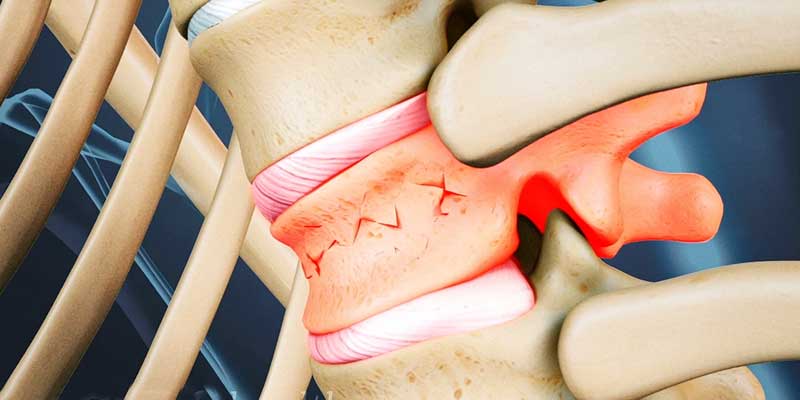- drmanojgaddikeri@gmail.com
- Wockhardt Hospital, Mira Road
- For Appointments Call: +91-22-40543000

A spinal fracture is an injury to one or more of the vertebrae in your spine. It can happen anywhere along your back, from the neck down to the lower back, and it can range from a minor injury to a serious, life-threatening condition. Spinal fractures are often caused by trauma, like a car accident, fall, or high-impact sports injuries. Depending on the severity of the fracture, the treatment plan can vary—some cases can heal with rest and medication, while others may require surgery.
What Causes Spinal Fractures?
Most spinal fractures happen because of an accident or injury. A sudden impact, such as from a car crash or a fall from a height, can cause the vertebrae to crack or break. The severity of the fracture depends on the type and the force of the injury.
Other factors can also contribute to spinal fractures. For example, conditions like osteoporosis can make bones weaker and more prone to fractures. Tumors or infections in the spine may also lead to vertebral fractures, even without any significant trauma. In some cases, people with weakened bones may experience fractures from something as simple as bending over or lifting something heavy.
Types of Spinal Fractures
There are different types of spinal fractures, each with unique characteristics:
Compression Fracture: This is one of the most common types, especially in older adults with osteoporosis. In this type of fracture, the front portion of a vertebra collapses, but the back portion stays intact. It’s often caused by the weakening of the bone due to conditions like osteoporosis or cancer.
Axial Burst Fracture: These occur when there is a vertical impact, such as a fall from a height. Both the front and back of the vertebra are crushed, which can be quite serious. These fractures often involve a lot of force and may cause spinal cord injury.
Chance Fracture: This type of fracture happens when the vertebra is pulled apart, often due to a violent forward bend, like during a car accident. It can cause the vertebra to fracture in a way that can be quite painful and may need immediate attention.
Symptoms of a Spinal Fracture
The symptoms of a spinal fracture can vary depending on its severity. Some common signs to watch out for include:
Treatment for Spinal Fractures
Treatment for a spinal fracture depends on the type and severity of the injury. For minor fractures, conservative treatment options may be enough. These can include:
For more severe fractures, surgery may be necessary. Surgical options may involve stabilizing the spine with screws or rods or realigning the bones to ensure proper healing. If the spinal cord is injured, additional treatments may be needed to address nerve damage or paralysis.
Preventing Spinal Fractures
While not all spinal fractures can be prevented, there are steps you can take to reduce your risk. Maintaining strong bones through a healthy diet rich in calcium and vitamin D, staying active with weight-bearing exercises, and taking precautions to avoid falls (like using proper safety equipment in sports) can help keep your spine healthy and reduce the chances of injury.
If you’ve experienced a spinal injury or suspect you have a fracture, it’s important to consult a specialist. Dr. Manojkumar Gaddikeri, a leading orthopedic spine surgeon, can provide expert evaluation and treatment to help you recover and protect your spine for the future.